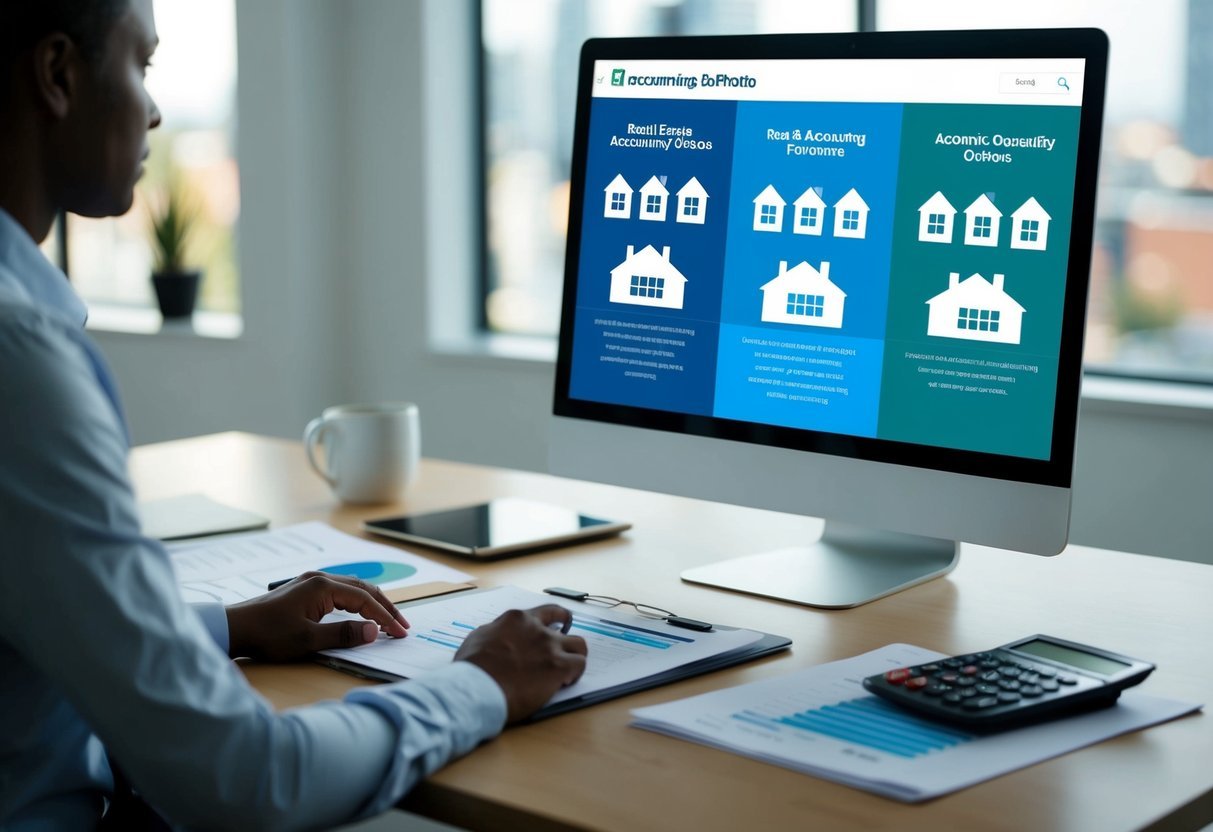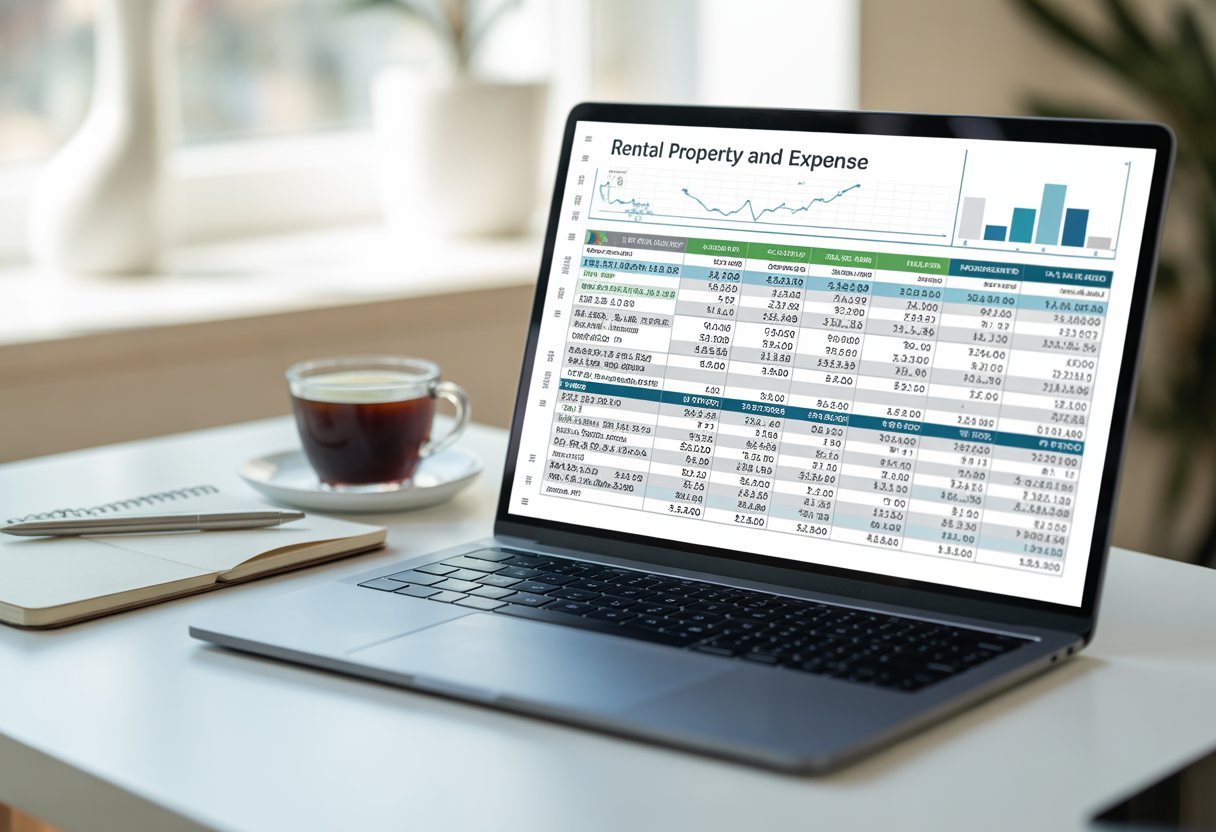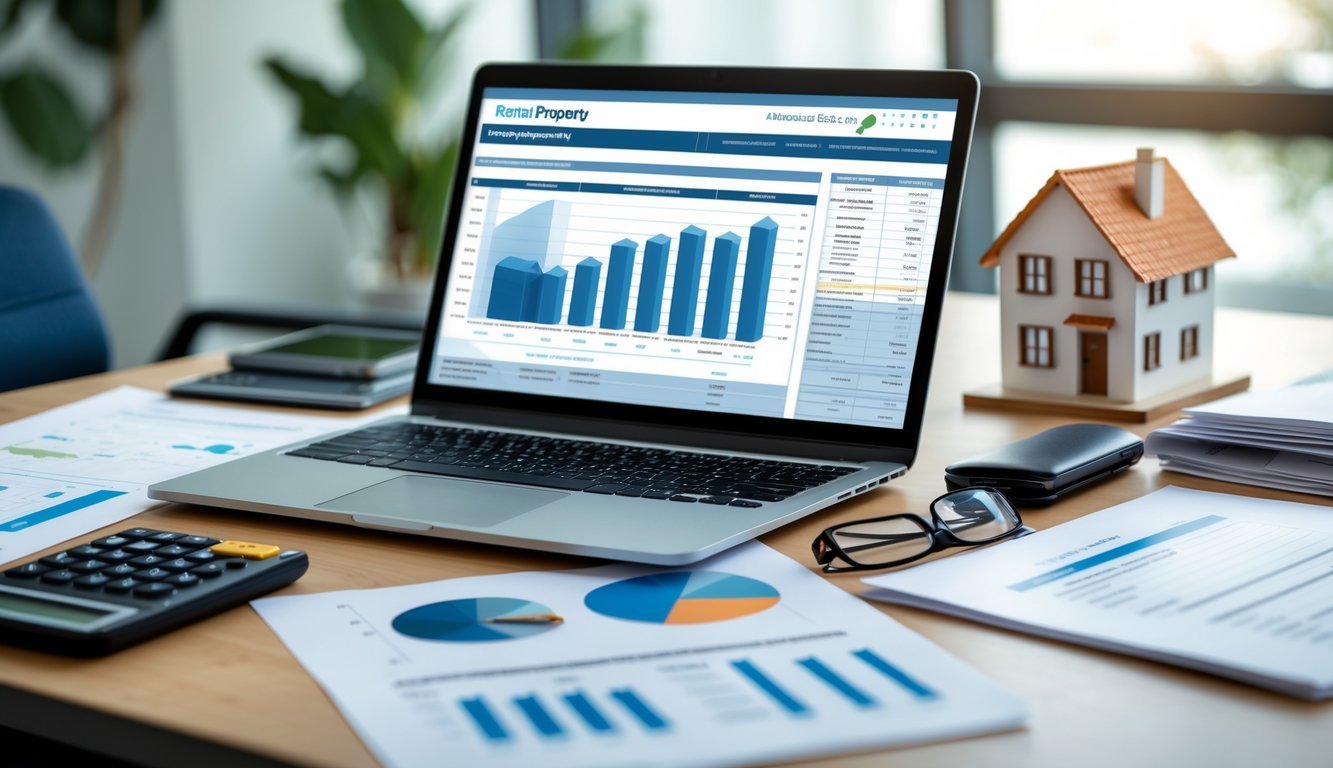Finding the right real estate accounting software can make handling your rentals or investment properties much more efficient. The right platform helps you keep track of income, expenses, and project budgets with ease, freeing you to focus on growth instead of paperwork. With so many options on the market, knowing which features truly matter will save you time and prevent costly mistakes.
You want solutions that offer transparency, strong reporting tools, and integrations that match how you do business. Whether you’re managing a handful of rental units or overseeing large developments, choosing carefully ensures your numbers are always reliable and up-to-date. This guide will help you navigate the decision process so you can confidently choose software that enhances your productivity.
Key Takeaways
- Focus on essential features that match your real estate needs.
- Compare top solutions to find the right fit for your business.
- Make informed choices to streamline your accounting process.
Essential Considerations When Choosing Real Estate Accounting Software
Selecting the right real estate accounting software impacts your control over financial transactions, compliance, and property management efficiency. Focusing on robust features, seamless integration, secure data handling, and scalability ensures the software meets the unique needs of landlords and property investors.
Core Accounting Features
You need real estate accounting software with robust tools for managing transactions, expenses, and rental income. Look for functions like double-entry accounting, automated bank reconciliation, and customizable chart of accounts. Software should streamline your financial reporting by allowing you to generate balance sheets, income statements, and cash flow reports.
Tax compliance features are critical. The ability to track deductible expenses and generate tax-ready reports simplifies year-end preparation. Automated reminders for recurring transactions and rent collection help reduce manual errors and missed payments.
Key features to consider:
- Automated payment processing
- Lease and tenant management
- Built-in audit trails
- Report exports (PDF, Excel)
Prioritize solutions that can handle multiple properties and unit types without getting cumbersome.
Integration With Other Real Estate Tools
Integration is essential when your business relies on other real estate management software or proptech tools. Accounting software should connect with property management systems, CRM platforms for real estate agents, payment gateways, and maintenance tracking apps to ensure smooth workflow.
You benefit from eliminating double entry and manual data transfer, which reduces mistakes and saves time. Some platforms offer API access, making it easier to synchronize data across systems or pull in information from popular property management apps.
Choosing software that offers seamless integration enables features like automated rent tracking or vendor payments directly linked to your financial ledgers. For a deeper dive on integration, see this guide on how to choose real estate accounting software.
Security and Compliance Standards
Given that real estate involves sensitive client data and large financial transactions, security should be a top priority. Modern accounting software uses encryption, role-based access controls, and regular security audits to protect financial and personal information.
You want a platform that supports compliance with local and federal regulations relating to financial management and tax compliance. Features such as two-factor authentication, user activity logs, and compliance certifications help safeguard both property owner and tenant data.
Ensure your provider performs regular security updates and provides documentation on compliance with standards like SOC 2, GDPR, or other relevant laws in your region. Reliable customer support is also essential in the event of a data breach or security concern.
Scalability for Real Estate Portfolios
Your accounting software should grow with your portfolio. If you manage a small number of properties now but plan to expand, scalable solutions prevent costly software switches in the future.
Look for software that can efficiently handle the addition of new properties, users, and entities as your investment business grows. The ability to customize workflows, generate consolidated financial reporting across multiple properties, and enable user-specific rules is important for evolving property management needs.
Review subscription models, support for multi-entity accounting, and advanced analytics options like predictive analytics for cash flow forecasting. Some providers offer flexible pricing depending on the number of properties or units you manage, which is worth considering as you scale. Learn about pricing and scaling concerns in this summary of best real estate accounting software.
Comparing Top Solutions and Enhancing Productivity
Not all real estate accounting platforms are created equally—features, pricing, and integration options can make all the difference in maximizing return and efficiency. The following subsections break down important product options, practical budgeting concerns, and ways to optimize business operations through automation.
Popular Real Estate Accounting Software Options
Some of the most widely used real estate accounting solutions include QuickBooks, Xero, and Sage 300 Construction and Real Estate. QuickBooks is known for its intuitive interface, flexible bookkeeping services, and support from certified QuickBooks ProAdvisors. It’s a reliable option if you need robust expense tracking, invoicing, and payroll processing.
Xero offers seamless bank feeds, real-time collaboration, and mobile app access, making it suitable for landlords and investors managing rental income and business expenses on the go. Sage 300 Construction and Real Estate is tailored specifically for property management and project management, with advanced contract management, accounts payable, and reporting tools.
You might also consider web-based property management software like Remote Books Online for outsourced bookkeeping. When comparing, evaluate specialized real estate features such as lead management, client management, and the ability to generate financial insights that support your financial health. For details and comparisons of leading platforms, review resources like this comparative review of top real estate accounting software.
Assessing Costs and Budgeting for Software
Pricing can vary significantly by platform, features, and how many users or properties you manage. QuickBooks and Xero typically offer tiered monthly subscriptions, with higher plans enabling advanced functions like payroll and multi-property support. Sage 300 Construction and Real Estate has enterprise-level pricing and may involve custom quotes based on your organization’s size and needs.
When budgeting, carefully consider both visible fees and potential hidden costs, such as charges for CRM or contract management add-ons, bank integrations, or enhanced support. Many solutions also offer discounts if you commit annually or sign up with a bookkeeping service provider.
It’s a good idea to list all business requirements, including accounting, CRM needs, payroll processing, expense management, and reporting. Compare these against the features and pricing structures of each platform. Capterra’s best real estate accounting software list can help assess the right fit for your budget and operational demands.
Streamlining Operations With Integrations and Automation
The ability to connect your accounting software to other business tools directly impacts efficiency. Look for platforms that integrate with CRM software for real estate, Google Workspace, Zapier, and apps for contact management or project management. For example, linking a real estate CRM system lets you automate lead generation, track communications, and manage transactions in one place.
Automations such as syncing with bank accounts, scheduling recurring rent payments, and generating custom financial records save you manual labor and reduce errors. Some platforms also offer integrations with Salesforce, chatbot tools for client management, and enhanced mobile apps for on-the-go access.
Automated workflows for bookkeeping, rental income tracking, accounts payable, and payroll processing free up time for other business priorities. Prioritize accounting software that promotes seamless operations and growth with your preferred real estate software stack. For comparison on feature-rich integration options, check resources like the comparison of the top 10 property accounting software.
Frequently Asked Questions
Selecting real estate accounting software requires a focus on property management features, ease of use, and long-term adaptability. Each option offers distinct tools, benefits, and limitations, especially for realtors, landlords, and investors.
What are the essential features to look for in real estate accounting software?
You should prioritize software with tools specific to property management, such as rent collection, expense tracking, and tenant management. Look for solutions that offer robust reporting, integration with other property systems, and automated transaction logging. Features like bank reconciliation and easy tax preparation are also important for accurate records and compliance.
More detailed feature lists can be found from guides like 10 features to look for in real estate accounting software.
How does accounting software specifically benefit real estate businesses?
Real estate accounting software streamlines rent, lease, and payment tracking, reducing manual entry. Automated tools for expense categorization and financial reporting free your time and help ensure accuracy. This allows you to monitor cash flow, track profitability for each property, and prepare statements for partners or tax filing.
Can free real estate accounting software meet the needs of professional realtors?
Most free accounting solutions offer basic features such as simple invoicing and expense tracking. Professional realtors often need advanced capabilities, including property-level accounting, integration with CRM systems, and multi-user access. Free options may fall short if your business grows or requires compliance-ready reporting.
What are the top-rated accounting software solutions for real estate investors?
Top-rated solutions for real estate investors include platforms built for the industry, supporting features like portfolio performance tracking and rental income reporting. Options such as REI Hub, Buildium, and AppFolio are highly regarded. You can find more details and comparisons on best real estate accounting software.
How to evaluate the scalability of accounting software for growing real estate firms?
Check if the software can handle more properties or users as your portfolio expands. Look for options with flexible plans, add-on modules, and third-party integration capabilities. User-friendly data migration and customer support are also key factors to consider as your business evolves.
What are the pros and cons of using Wave Accounting for real estate financial management?
Wave Accounting is easy to use and free for basic features, making it accessible if you manage a few properties. However, it lacks advanced property management functions, such as tenant portals, detailed rent roll tracking, and direct integration with real estate platforms. This may limit its usefulness for established landlords or large portfolios.



